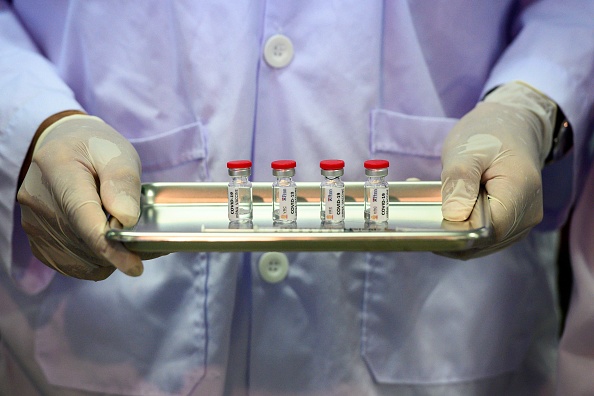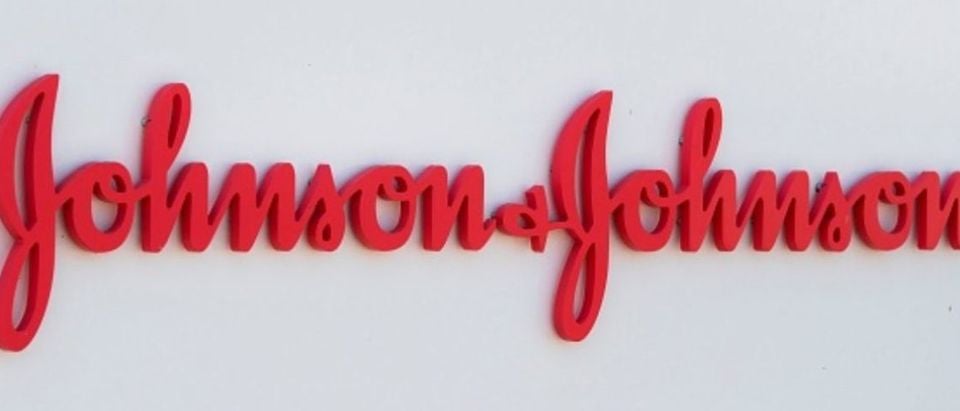Johnson & Johnson announced Wednesday that it will accelerate the initiation of their first in-human clinical trials for a COVID-19 vaccine.
Originally scheduled to begin in September, the trials are expected to begin in the second half of July, according to a statement released by the company.
“Based on the strength of the preclinical data we have seen so far and interactions with the regulatory authorities, we have been able to further accelerate the clinical development of our investigational SARS-CoV-2 vaccine,” said Chief Scientific Officer at Johnson & Johnson, Dr. Paul Stoffels. “Simultaneously, we are continuing our efforts to build important global partnerships and invest in our vaccine production technology and manufacturing capabilities.”

This picture taken on May 23, 2020 shows a laboratory technician holding a tray with doses of a COVID-19 novel coronavirus vaccine candidate ready for trial on monkeys in Thailand. (Photo by MLADEN ANTONOV/AFP via Getty Images)
Collaboration between J&J’s Janssen Pharmaceutical Companies and the U.S. Department of Health & Human Service’s Biomedical Advanced Research and Development Authority has expedited the development and production of a vaccine to be tested in healthy adults 18 to 55 years of age and adults 65 years and older for evaluation of safety and effectiveness, according to the statement.
The company is currently in discussions with the National Institutes of Allergy and Infectious Diseases to begin the Phase 3 vaccine clinical trials ahead of its original timetable as well pending the outcome of phase 1 studies and approval of regulators, per J&J.
As the first round of in-human clinical trials take place, J&J continues to increase their manufacturing capacity and is in discussions with global partners to supply more than one billion doses globally through 2021. (RELATED: US Orders 300 Million Doses Of Vaccine That ‘May Not Work’)


